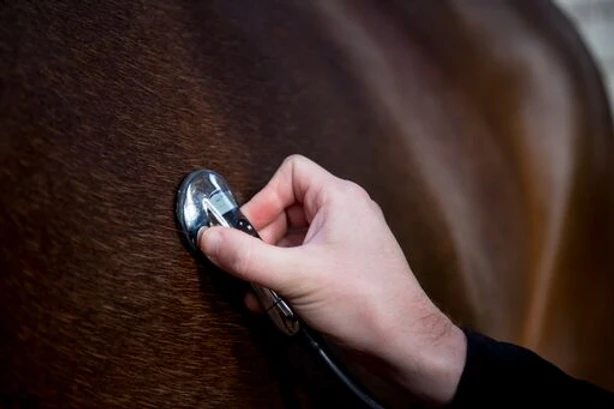
Last spring we were presented with a yearling thoroughbred who suffered from acute fulminant diarrhoea. The horse was dull, had ventral oedema, was dehydrated and generally in very poor condition. I have added some pictures below for illustration (photographs taken from the internet). The bloods revealed an elevated white blood cell count, including elevated eosinophils, low albumin and an elevated immune globulin measurement. Our suspicion of the underlying cause was confirmed when the horse produced some dung: the droppings were teeming with small red worms. The horse was suffering a severe case of larval cyathostomiasis.
Horses can be infected with a range of parasites among which the small Strongyles are an important pathogenic group and can cause severe illness and death.
Cyathostomes have an unusual mechanism of survival for their species in that a certain amount of larvae in the gut are able to encyst in the bowel wall and lay dormant for a period of up to two years. The horse is not much affected by the presence of these sleeping beauties unless the bowel wall is heavily infested and their presence starts to interfere with a healthy intestinal function (see the image below that shows a typical ‘salt and pepper’ marking in the bowel on this pathological sample). The owner sees a horse that’s ‘just not thriving’.

However, the real problems start when, through a trigger that is not really known, the dormant larvae decide to erupt from the bowel wall and decide to go out in the wide world. This normally happens late in the winter and early in spring in the Northern and Southern Hemisphere (the temperate part) and is therefore sometimes called Winter Cyathostomiasis. This causes an enormous amount of damage and inflammation in the bowel causing acute diarrhoea and symptoms that were mentioned above. The mortality can be between 40 and 70 percent, often despite aggressive treatment of the cause and the symptoms.
It is important to deworm your horses throughout the year, to prevent the build up of dormant larvae in the bowl and especially once more in the autumn, with a wormer that specifically aims at the dormant stages of the cyathostomes. The autumn is also the time of year to deworm specifically against tapeworm.
Talk to us if you want to start a targeted worming program for your horses and prevent the occurrence of debilitating conditions such as cyathostomiasis.
We have a 24 hour on-call Veterinary service. Call us on 03 5975 6586.








